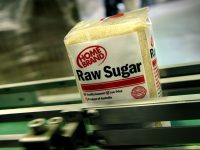Government policies and regulations influence all aspects of Australia’s sugar industry. ASMC advocacy aims to benefit members by removing barriers and adding value to the raw sugar supply chain.
Our priority areas of focus include industry revitalisation, market access, trade liberalisation and energy & climate change where state and federal government policies can have significant influence on sugar industry growth and viability.
ASMC aims to ensure government policies support rather than hinder our sugar milling members’ operations.

Positive Regulatory Environment
Restrictive regulations including the Sugar Code of Conduct and the mirroring Queensland state marketing legislation challenge the future growth and stability of the sugar industry. The Sugar Code of Conduct adds uncertainty, complexity and cost to sugar industry operations.

Market Access and Trade
Australia is an open and trade-based economy and raw sugar trading is highly competitive. Gaining access to new markets is a priority as over 85% of our raw sugar is traded globally. Because our industry is exposed to market volatility, liberal trade settings are also critical to Australian sugar’s profitability and ongoing viability.

Renewable Energy
Our members’ mills are almost self-sufficient in co-generated power and our surplus renewable electricity is exported to the national grid. We remain concerned that many government policies have not sufficiently recognised or rewarded the renewable energy/biomass investments put in place by the Australian sugar industry.
Social License to Operate

Australia’s sugar industry faces a raft of community-driven issues that challenge its social licence to operate. Health and nutrition concerns that link obesity levels and sugar consumption are top of mind in the community. Equally, environmental concerns and the need to protect the Great Barrier Reef need to be addressed via adherence to best practice management practices.

Research Strategy
The sugar industry has benefited substantially from research and development-led innovation. Industry investment in applied science and the subsequent application of the accumulated knowledge and expertise has delivered consistent gains. However, the sugar industry has not kept pace with productivity improvements achieved in other agricultural industries in recent times. The high levels of investment in sugar RD&E have yet to deliver their full potential.
People & Safety

The sugar industry prioritises employee and contractor safety. Mills collaborate and drive innovations on people and safety issues across the industry.
